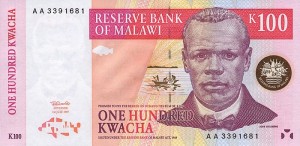The government recognises that the private sector is Malawi’s growth engine, as stated in the Vision 2020 and the MGDS II programmes. However, there are challenges that hinder private sector growth such as structural bottlenecks — poor infrastructure and inadequate electricity supply — as well as cumbersome legislation and weak private sector support institutions. In an effort to remedy such problems, the government has implemented a Business Environment Support and Technical Assistance Programme (BESTAP) with the help of some donor partners since 2006, aimed at identifying the key structural and legislative bottlenecks that need to be addressed in order to improve the business environment. While BESTAP has provided a high-level government-private sector forum for dialogue, legislative reform has been slow and most of the bottlenecks still exist. For instance, there has been no improvement in the number of procedures it takes to register a business, acquire a construction permit or register property in Malawi over the last four years. As a result, Malawi’s ranking in the Ease of Doing Business Survey for 2012 fell four places to 145 out of 183 countries. The government’s revenue mobilisation strategy of increasing fees and charges, and reducing or abolishing some private sector incentives, may make matters worse.
Excerpt from African Economic Outlook 2012: Malawi




